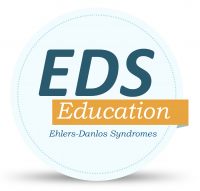1. We heard that advocacy is a large part of us as nurses. As with any patient, we can start with believing our patients. Understanding the scope of challenges for EDS patients will strengthen your resolve for helping them find resources and connecting to organizations with expertise and experience with the trajectory of this chronic condition. Having someone recognize Mattie’s symptoms earlier would have possibly prevented many of the complications that she is still dealing with. You are taking the first step by learning more about EDS.
2. Our first point of contact was the genetics department where Mattie received her diagnosis. This was a good place to start; however, provided little ongoing support. We connected with other organizations and identified some chat rooms that led us to organizations such as Chronic Pain Partners who provide education for EDS and can connect you with support groups. Other organizations such as National Organization for Rare Disorders can also offer some help how to connect to providers, support organizations and other patients and families. There is not one formula and we have found that networking, being persistent and asking many questions have eventually led us to the solution or provider that we needed. We met some other families at an international conference for EDS and realized that those in areas around research centers for EDS have more accessible and appropriate services. In our case, we typically have to travel to find the services we need. This is why awareness and advocacy is so very important. With more knowledge, you may be able to identify symptoms that will allow early intervention and improved outcomes for someone with EDS.
